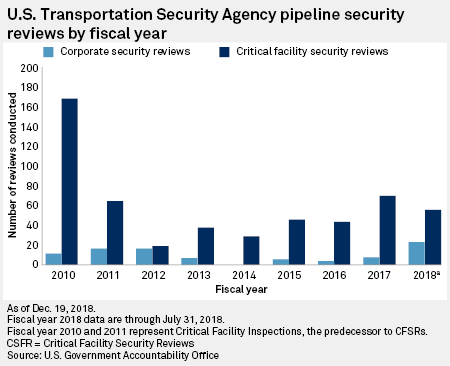Featured Topics
Featured Products
Events
S&P Global Offerings
Featured Topics
Featured Products
Events
S&P Global Offerings
Featured Topics
Featured Products
Events
S&P Global Offerings
Featured Topics
Featured Products
Events
Financial and Market intelligence
Fundamental & Alternative Datasets
Government & Defense
Professional Services
Banking & Capital Markets
Economy & Finance
Energy Transition & Sustainability
Technology & Innovation
Podcasts & Newsletters
Financial and Market intelligence
Fundamental & Alternative Datasets
Government & Defense
Professional Services
Banking & Capital Markets
Economy & Finance
Energy Transition & Sustainability
Technology & Innovation
Podcasts & Newsletters
12 May, 2021
|
U.S. Energy Secretary Jennifer Granholm on May 11 asked Americans to avoid hoarding gasoline and urged them to report price gouging. Source: Jennifer Granholm |

Asked about TSA's long-standing staffing problems, Mayorkas said the administration recently launched a series of cybersecurity "sprints," with the first focused on ransomware and the second aimed at recruiting and retaining top cybersecurity talent.
Rep. Emanuel Cleaver, D-Mo., sought to tackle TSA's shortfalls in 2019 by introducing legislation that addresses several GAO recommendations, including regularly updating industry guidelines, developing a personnel strategy and recruiting cybersecurity experts.
Glick and Chatterjee have advocated a different approach: transferring TSA's pipeline cybersecurity responsibilities to the U.S. Department of Energy. They also noted in the 2018 op-ed that TSA has the authority to impose minimum standards but chooses to rely on voluntary ones.
Some say regulations are not the answer
Cybersecurity professionals have warned that best practices are not ironclad and may not prevent another whole-system shutdown, though some feel similarly about regulation.
"Regulation is just one tool in the toolbox, and regulation inherently ... lags risk," Siemens Energy AG Vice President and Global Head of Industrial Cyber and Digital Security Leo Simonovich said in an interview. "It has its usefulness in creating some basic hygiene standards, and it's done quite a bit of good for the electric sector."
The American Petroleum Institute on May 11 said it was premature to craft regulations in direct response to the hack until the details of the incident are known. Rather, the trade group said it was more constructive to adopt more flexible policies down the line that allow companies to adapt to evolving threats. API also said the incident demonstrated that the U.S. needs more pipeline infrastructure to ensure redundancy in the system.
Top Republicans on infrastructure-focused committees shared that view in a May 11 news release. "Cyberattacks on our infrastructure network represent an ongoing, serious threat to our national security. However, it also highlights the continued need for projects that would expand our capacity for safely and efficiently moving goods and people," said Rep. Sam Graves, R-Mo., ranking member of the Transportation and Infrastructure Committee, and Rick Crawford, R-Ark., ranking member of the Railroads, Pipelines and Hazardous Materials Subcommittee.
Graves and Crawford said the canceled Atlantic Coast Pipeline LLC and disputed Mountain Valley Pipeline LLC projects "would have also created a significantly greater capability to respond to this cyberattack." Those projects would increase natural gas transportation capacity on the East Coast. The Colonial system carries gasoline and other refined liquid fuels from Texas to New Jersey.